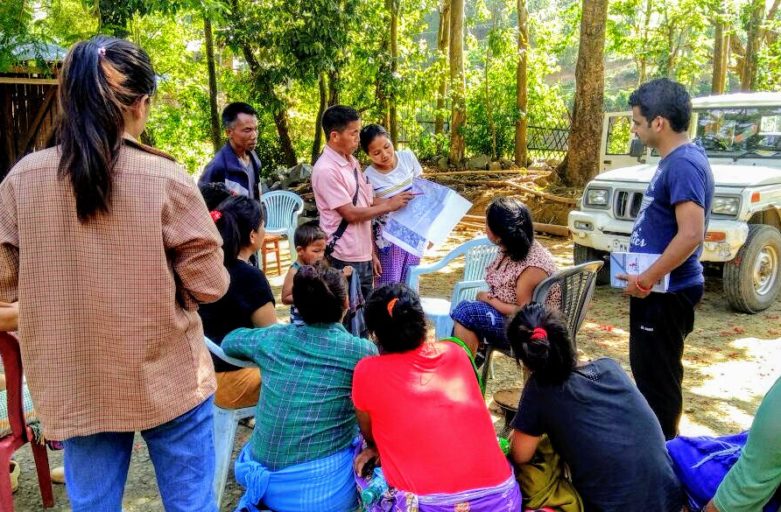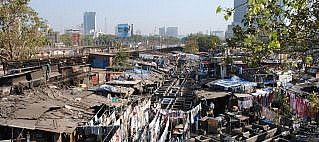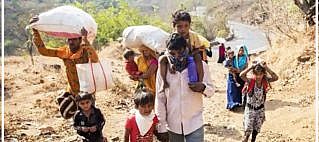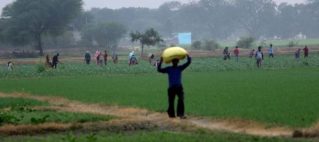“Whispering Winds of Change in Manipur: Women Land Rights gaining Strength among Hill Tribes”
It was a balmy afternoon in B Taudaijang, a sleepy Rongmei Naga village in Tamenglong district in Manipur hills, cradled on a hilltop, flanking the beautiful khopum valley. In the village meeting inside the make-shift Church, men and women, about hundred in number, quite excitedly were raising their hands to endorse the proposal of joint-titling their land-certificates.
Village community was surprisingly open to this new idea of women land rights, which was unheard of in their customary systems, though widows or single women, are often allowed to possess and use land by village authority or elders, largely out of empathy.
Taudaijang has recently elected three women to the village authority council, which has largely remained a male bastion, among hill community. There are only 6 women out of 156 members of Autonomous District Councils in hill districts of Manipur, as per Thaithuilung Pamei, IAS a senior bureaucrat and a rare gender-equity advocate in the state. There are entrenched inequities in customary laws around inheritance in favour of first or last sons and negligence of women, he said in a land workshop organized by RNBA, underlining the need to bring in reforms and avoid continuation of such discrimination.
Dimgong Rongmei, chief functionary of RNBA, an Imphal based leading NGO of the state was proud to introduce these newly elected women to the visiting guests. He hails from this village and since last few years helping the villagers bringing in many new reforms.
With request of village authority, RNBA, agreed to pilot a community mapping exercise to survey and map land rights over jhum (shifting cultivation) lands, homesteads, orchards as well as on community forest and watersheds. This process will use mobile phones aided with DGPS technology by trained village youth to develop a village level registry, land being under village ownership in Manipur hills. All individual certificates will be joint-titled and all single women in the village will have certificate in their name only.
Cadastral survey has been done only in 10% of geographical area mostly in plains and some part of hills, as per Mr Pamei. There is a need to extend survey to hills with the consent of village leaders and create opportunities to remove obstruction to collateralize land to provide people access to credit, he argues. Secured land tenure with a formal record is a minimum security to get access to formal credit, says Armstrong Pame, another young bureaucrat and district commissioner of Tamenglong.
Pranab Choudhury of NRMC Centre for Land Governance (CLG), was looking very happy, witnessing the demand for land records among the villagers, consent of village leaders to go for mapping and more importantly their willingness to recognize women land rights. CLG, a Bhubaneswar based land think tank, supports RNBA in this task with its technology partner Geolysis in planning and implementing this mapping exercise.
Frank Pichel of Cadasta Foundation, USA, was looking quite excited to lend their mapping platform for this pilot. He was attending this meeting on invitation of CLG, with which Cadasta has established a formal partnership now.
Women continue to live at a low status also in kuki society, another important hill tribe in Manipur, with a hereditary chieftainship and chief owning all lands. As of now there is no provision of land rights for the women among kukis, nor among 20 odd tribes constituting about 20% of the population and living in hills covering 90% of state’s area.
However, silently and slowly winds of change have started blowing in Manipur. NGO like PESCH in Jiribam as a member of RNBA-BroT network started promoting women land rights about 3 years back, by negotiating group leasing in a village in Tamenglong district in consultation with Village authorities. RNBA, with support of Bread for the World (BroT), an international charity is implementing an integrated project with land rights as an important component in 30 villages with six NGO partners. RNBA-BroT nework have resolved to facilitate provision of land certificates in one village each, in the name of wife and husband and also helping single women get such certificate in their name. This will be a part of their work to develop village level registry through community mapping of land rights in line with local customary tenure.




